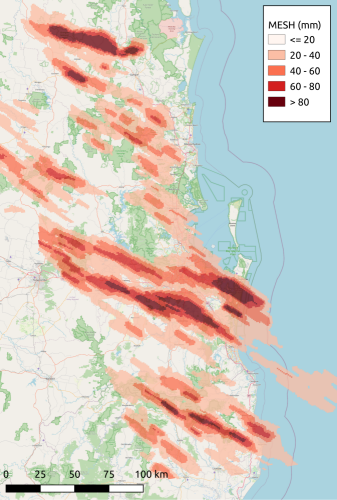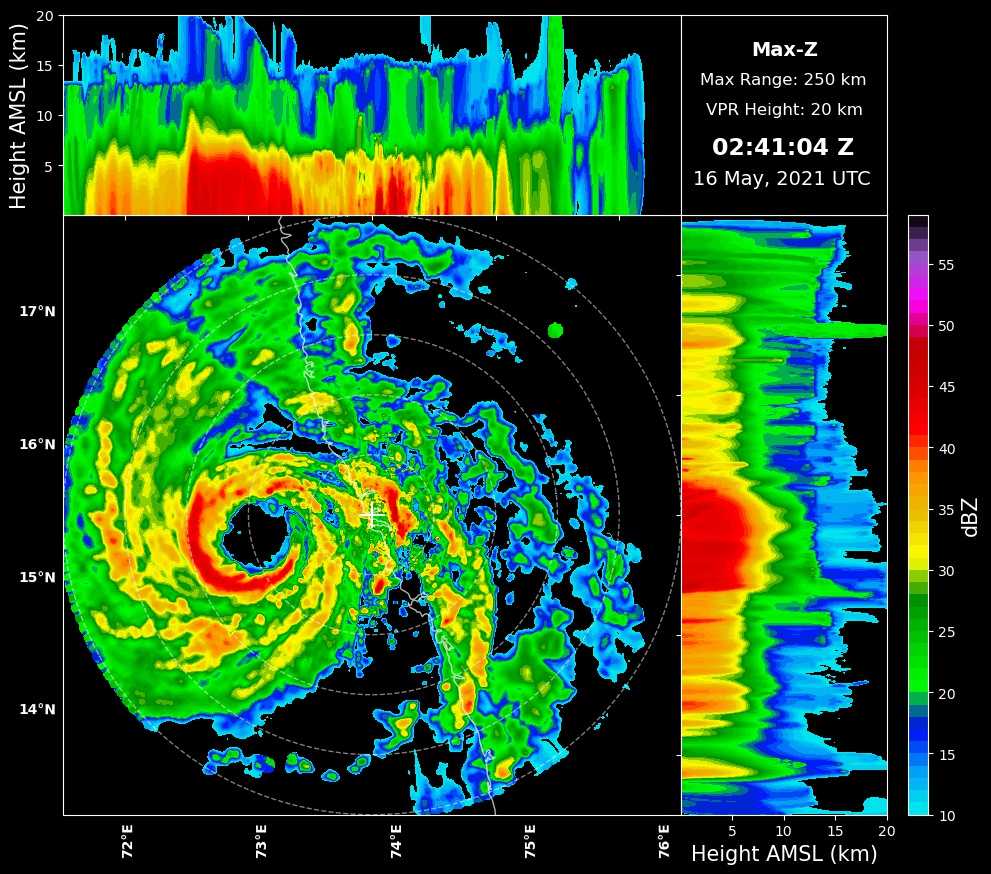Posted in 2022
pyhail
This software provides Python functions for retrieving hail properties from weather radar data ingested via Py-ART. This includes the Maximum Estimated Size of Hail (MESH), Hail Accumulation (hAcc), Hail Differential Reflectivity (HDR) and the Hail Size Discrimination Algorithm (HSDA). MESH is implemented for both the Py-ART radar (ppi) and grid objects, and options are available for different fits of the SHI hail-size relationship. A notebook is provided to demonstrate how to call each retrieval.


Hail Retrievals for the Open Source Community
- 15 November 2022
- News
Hail is a global hazard, with damage to property, vehicles and agriculture resulting in billions of dollars in losses every year. This has motivated decades of research into estimating the size and intensity of hail from weather radar, and now numerous algorithms exist that work on operational weather radar datasets. PyHail represents a single library where many of these retrievals are available to enable rapid integration into existing Py-ART projects.
Hail retrievals provide an estimate of hail severity, including maximum dimension, accumulation depth and kinetic energy. These estimates can be used to:
Giving Open Radar Science a New Look
- 31 August 2022
- News
It is time that the Open Radar Science community move to a new look for our landing page! We have updated our infrastructure to make it easier to view, contribute, and collaborate with our community.
This move was motivated from conversations and discussions at the 11th European Conference on Radar in Meteorology and Hydrology, which was held in Locarno, Switzerland.
PyScanCf
PyScanCf – The Open Source Python based Library for Indian Meteorological Department (IMD) Doppler Weather Radar Datasets. This package provides a Python framework for working with single sweep radar data, from which sophisticated workflows can be constructed and used as input to Python based open-source softwares for processing radar data like as Py-ART, and Wradlib.
https://syedhamidali.github.io/PyScanCf
